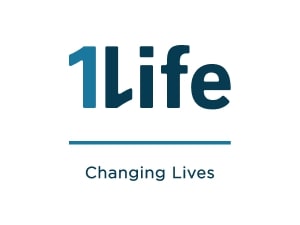 During recent years, the importance of financial literacy programmes has gained the attention of a wide range of role players, including banks, government, community interest groups and business, however there is still more to be done, according to 1Life.
During recent years, the importance of financial literacy programmes has gained the attention of a wide range of role players, including banks, government, community interest groups and business, however there is still more to be done, according to 1Life.
Laurence Hillman, MD of 1Life: “The recession, poor job market, low savings rate and increasingly indebted consumers, reaffirms the importance of increasing one’s personal financial literacy. However, the financial terrain is often uncharted for many consumers, especially the youth who need suitable guidance, considering they make up 77% of the population.1 What’s more the Reserve Bank's financial report2 for the year ended March 31, found that unsecured lending by the six banks increased from R321.36bn in December 2011, to R441.27bn in December 2012 and although this has come down in slightly in 2013, it is still a cause for concern.”
As the 8th of September marks International Literacy Day, 1Life wish to reiterate the importance that financial literacy specifically holds for our country’s prosperity and growth, as well as the personal benefits it can provide each and every South African.
“Companies and financial institutions have a responsibility to ensure that people are educated in financial matters and this can be achieved through the sponsoring of educational programmes, designed to assist with money management – of which The MoneySchool is one such example,” says Hillman.
The MoneySchool education centres provide graduates with the practical tools and knowledge to develop themselves into savvy money managers. Hayley Parry, co-founder of The MoneySchool says: “Too many people are spending more than they actually earn, while continuing to rely on credit to make ends meet. There is an intrinsic link between this kind of behaviour and having money sense. Not only does financial illiteracy impact on the individual’s day-to-day money management, but it also impacts their ability to save for long-term goals and reach financial independence at retirement age. People who make a deliberate effort to equip themselves with an education in personal finance have an advantage over others in life, as they have the ability to dictate the way they live and build wealth.”
Financial literacy programmes can also contribute to social cohesion, by supporting the improvement of a community’s wellbeing. In fact, these kinds of programmes are especially important in a country such as South Africa, where there is a vast disproportion between rich and poor communities.
“In the last two years Finance Minister Gordhan has stressed the need to raise the levels of basic financial literacy amongst all South Africans. While government has an important part to play, there needs to be a combined effort from corporate SA too. Financial literacy, however, cannot be acquired immediately, but rather is something that needs to be learnt over time and once achieved can empower people to take control of their finances by making more informed decisions that can be life changing both personally and for SA as a whole.”
Reference/s:1http://finweek.com
2http://www.fin24.com